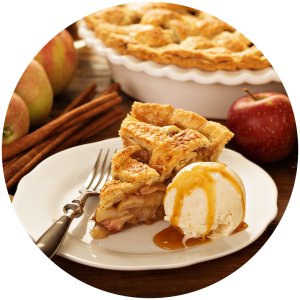[TESTIMONY] “For the first time, I felt that I was speaking with someone who understood.”
...
Read moreTo regain control over our gambling habits, it is important to know that many things in our daily lives can, either consciously or subconsciously, become associated to gambling. Thus, they can trigger sudden urges to gamble, consciously or not. That is why we refer to them as “triggers”. Here are eight main triggers which may be beneficial to recognize whether they apply to you and some tips in learning how to deal with them.
In our everyday lives, there are things that we associate with each other whether by taste, habit, our upbringing… Take apple pie for example. Imagine that throughout your childhood apple pie was served with ice cream. For you, these two things naturally go together to make a dessert. They are associated. Since they are associated, you have continued serving them together once adult.
Imagine then, that a health problem forces you to decrease your sugar intake. Your doctor strongly recommends that you choose between the apple pie and ice cream, not both. The directive seems clear enough and yet… the next time you are at a restaurant, without even realizing it, you order ice cream with the apple pie. In the following weeks, you realize that it is hard to break the association between both things, to disassociate them. When you see apple pie on your plate, you feel a strong urge to add the missing piece: ice cream.

The apple pie triggers the urge for ice cream. The apple pie has become a trigger.
For those who gamble and especially for those with an excessive gambling problem, many elements of day-to-day life can create associations: a certain emotion, a specific time of the week, demands, personal context… For some, when one of these conditions appear, the urge to gamble follows. These associated conditions have become triggers. Here are eight examples in which you may recognize yourself and which are important to identify.
Access to money is a powerful trigger, especially if we think we can win more or win back what we have lost. For some, payday can cause a strong urge to quickly gamble this money.
Tip: establish a strict budget and make sure you stick to it. If you need help doing this, you can find it for free with a Association coopérative d’économie familiale (ACEF). You can also download their budget spreadsheets and do it yourself. For better financial control, you can also hand over budget management to someone trustworthy.
Gambling environments, such as casinos, bars with VLT’s… can be strong triggers for gamblers. For some, noticing the casino’s sparkling lights can cause a gambling urge. For others, it could be noticing scratchers on the counter of the store.
It is hard to resist an urge to gamble when we are convinced that the “next one” will pay off, that a good strategy always ends up winning or that gambling is the only way to solve financial problems. We call these erroneous beliefs or irrational thinking, like a little voice inside us talking and giving us false-good reasons to gamble: “I deserve it” or “I can’t always lose, I will end up winning”. It is easy to fall into the trap.
Tip: to fight erroneous beliefs, it is important to identify them and then learn to change them. If you need help doing so, chat with us at the bottom of the screen or call us at 1-800-461-0140.
Boredom and free time can lead to gambling as a form of entertainment. Filling your schedule with meaningful and social activities is an excellent way to decrease the appeal of gambling.
Tip: plan activities that occupy your mind, whether it is housework or any other entertaining activity: movies, sports, coffee with friends.
Gambling is often used as a way of escaping stress, anxiety, depression or social isolation. Finding healthy strategies for emotional management such as sports, meditation or psychological help is essential in breaking the cycle.
Tip: identify which emotions give you the biggest urges to gamble and establish strategies to deal with them another way, for example sports, meditation or getting psychological help. If you need help for that, contact our team.
Social influences play a significant role. If we hang out with people that gamble a lot, it can be difficult to not gamble. Pressure or encouraging gambling from loved ones can reinforce the addiction.
Tip: let your loves ones know that you wish to regain control over gambling. If necessary, limit your interactions with those who are not ready to accept your new life habits and who encourage you to gamble with them.

Using substances can modify your judgement and favour risk taking, including gambling. In fact, alcohol or drugs can decrease resistance to triggers or push us to bet more money without worrying about the consequences which will need to be addressed the day after.
Tip: of course, it is better to avoid substances that you know can lead to gambling.
If using substances is also an issue for you, it would be beneficial to talk about both these problems with a professional. Contact us to learn more. Our team is qualified to answer questions about excessive gambling, but also about substance use via our Drugs: Help and Referral service.
Being invited by colleagues to a casino night. Having a group of friends who like to spice up hockey matches by betting. Receiving a newsletter promoting gambling websites… The sources of solicitation can be numerous for people with an excessive gambling problem.
Tip: start by unsubscribing to any newsletter openly soliciting for online gambling. If needed, you can also self-exclude from Loto-Québec’s espacejeux.com website. As for friends and colleagues, do not hesitate to decline an invitation if you feel that the temptation will be too much, without necessarily talking about your gambling problem if you do not wish to do so. Being solicited is an invitation to the first step in gambling.
Regaining control over gambling is done through a set of strategies that vary from one person to another. Identifying, understanding and dealing with your own triggers is an excellent strategy which can be added to a variety of tools such as the decisional balance, understanding addiction mechanisms, identifying erroneous beliefs and certain traps.
Remember that a gambling addiction develops gradually, without us really realizing it, and gets to a certain point where willpower is not enough. Addiction is when willpower lacks willpower.
If you want to learn more or to get help, for you or a loved one, contact our team via chat, bottom right of screen or call 1-800-461-0140. Our service is free, confidential and available 24/7.
Ce contenu a été traduit grâce au soutien du Secrétariat aux relations avec les Québécois d’expression anglaise.